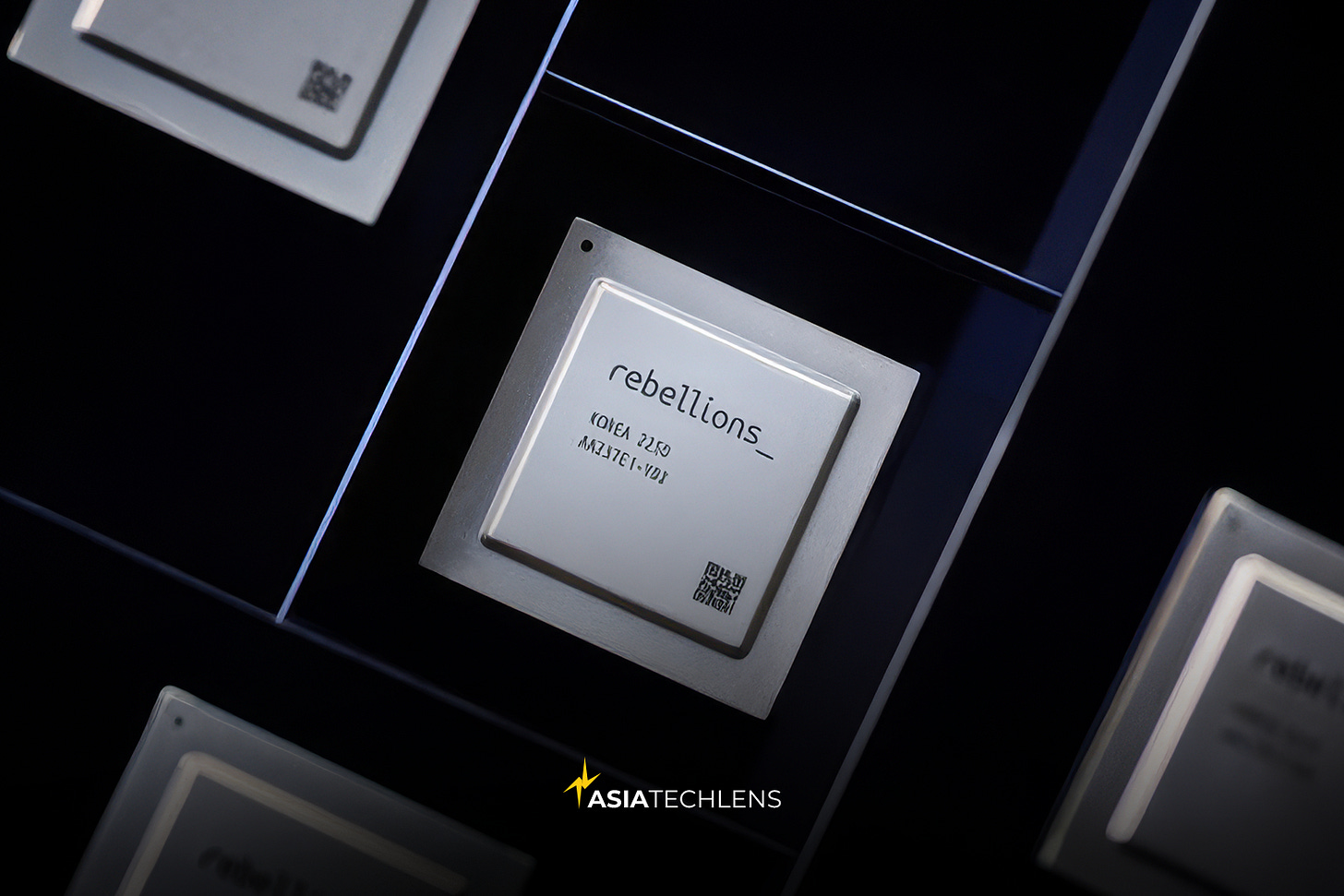Can South Korea Replicate Its K-Pop Success in AI Chips?
As NVIDIA dominates the global stage, Rebellions is betting that efficiency—and geography—can give Korea a new kind of export edge
For decades, South Korea’s global influence has been defined by its cultural exports—K-Pop, K-dramas, and K-beauty. Now, a new contender is rising: K-Chips, led by one fast-moving startup.
AI chipmaker Rebellions, founded in 2020, is reshaping Korea’s place in the global technology race. It was the first Korean startup to focus exclusively on AI semiconductors, and it has been on a historic run ever since.
But competition is tough. NVIDIA commands up to 95% of the global market share, and is valued at over US$5 trillion. Within the past 12 months, its market cap has increased by 53%. Its AI chips are used in gaming, data centers, autonomous vehicles, robotics, manufacturing, among others. That is to say, its influence extends far beyond the stock market—it powers much of the real economy.
Rebellions is on a path of gaining a similar kind of influence. It was the first Korean startup to mass-produce AI chips for large language models (LLMs), the first to expand overseas after setting up a Japanese subsidiary, and, following its merger with Sapeon Korea, it became Korea’s first deep tech and AI semiconductor unicorn—a milestone in a field long dominated by the U.S. and Taiwan.
The company’s momentum shows no sign of slowing. Just last month, it raised US$250 million Series C funding, putting its valuation to US$1.4 billion. The round was led by Arm Holdings, whose investment in Rebellions marked its first investment in an Asia-Pacific startup. The round also saw participation from Samsung Ventures, Pegatron VC, among others.
Rebellions is turning heads—and quietly rewriting Korea’s deep tech playbook. With plans to go public on the table—previously the company aimed for a 2025 IPO, a plan that is now delayed due to the ongoing U.S.–China tariff dispute—it’s definitely one to keep a close eye on.
Its strategy in carving a name for itself starts with inference.
From Training to Inference
In a podcast interview with CNBC International, published in March this year, Rebellions CEO Sunghyun Park explains that he’s building a “Korean version of NVIDIA, but we are focused on inference”.
AI chips are designed differently, based on their use case. NVIDIA chips, as Sunghyun describes them, offer much higher functional diversity—they can be used for training, inference, or bitcoin mining. Rebellions, on the other hand, specializes in offering chips for inference.
What’s the difference between training and inference, you may ask? Training is the phase of research and development; it’s essentially where you teach an AI model its parameters, which requires plenty of computation and memory power. Inference is the business phase, where trained models make predictions. Focusing on inference allows Rebellions to hone in on the measurements that matter most for businesses. It tracks not only speed (tokens per second or TPS), but also efficiency (tokens per second per watt or TPS/W), optimizing its hardware performance for the winning sales pitch: faster inference at lower power.
From Local to Global
So far, Rebellions is banking on its strategic investors as its customers. Rebellions CEO disclosed that the company has carried out collaborations with partners SK Telecom, Korea Telecom, and Kakao in data center projects in South Korea. That’s a solid domestic foundation, considering other players are popping up in Korea’s tech scene.
Recently, FuriosaAI has firmly positioned itself as a domestic contender to Rebellions, having raised a $125 million Series C round in July 2025 at a valuation of US$735 million. The funding round drew participation from more than 40 institutional and private investors, including the state-run Korea Development Bank (KDB), Industrial Bank of Korea (IBK), and Kakao Investment.
The rise of companies like Rebellions and FuriosaAI owes a lot to the strategic policy framework crafted by the South Korean government under the “K‑Semiconductor Strategy”, as well as related subsidy and incentive programmes. These policy instruments reduce financial risk and lower entry barriers, which creates a more favorable climate for raising capital and locating design and manufacturing partnerships in Korea.
But Rebellions shouldn’t be satisfied with the national chip champion title. It must seize momentum and claim its place in the global supply chain. In AI chips, technical edge and infrastructural support alone won’t determine winners. Geography and alliances matter as much as architecture.
From Korea, With Love
Global supply chains remain fragile and over-reliant on Taiwan, home to TSMC—the foundry behind most of NVIDIA’s chips. As U.S.–China trade tensions deepen, policymakers are pushing to diversify manufacturing bases. That’s where Korea, and Rebellions, come in.
Unlike NVIDIA, Rebellions relies on Samsung Foundry, giving it a production base outside Taiwan. In a world obsessed with supply-chain resilience, being Korean may prove as valuable as any technical edge.
Korea’s semiconductor sector now has the chance to redefine the nation’s global identity—much as K-Pop did two decades ago. If K-Pop showed that Korea could shape global culture, Rebellions aims to show it can shape the hardware powering the next wave of intelligence. Its greatest advantage may not be the silicon it builds, but the passport it carries.
🌏 Join us at the Singapore FinTech Festival 2025!
Be part of the world’s largest FinTech gathering where global leaders, innovators, and investors come together to shape the future of finance and technology.
🎟️ Use our exclusive promo code SFFSMPATL to enjoy 20% off delegate passes.
👉 Register now and share this code with your network!
For More Info on Asia Tech Lens



This article comes at the perfect time, what if Koreas AI leads?